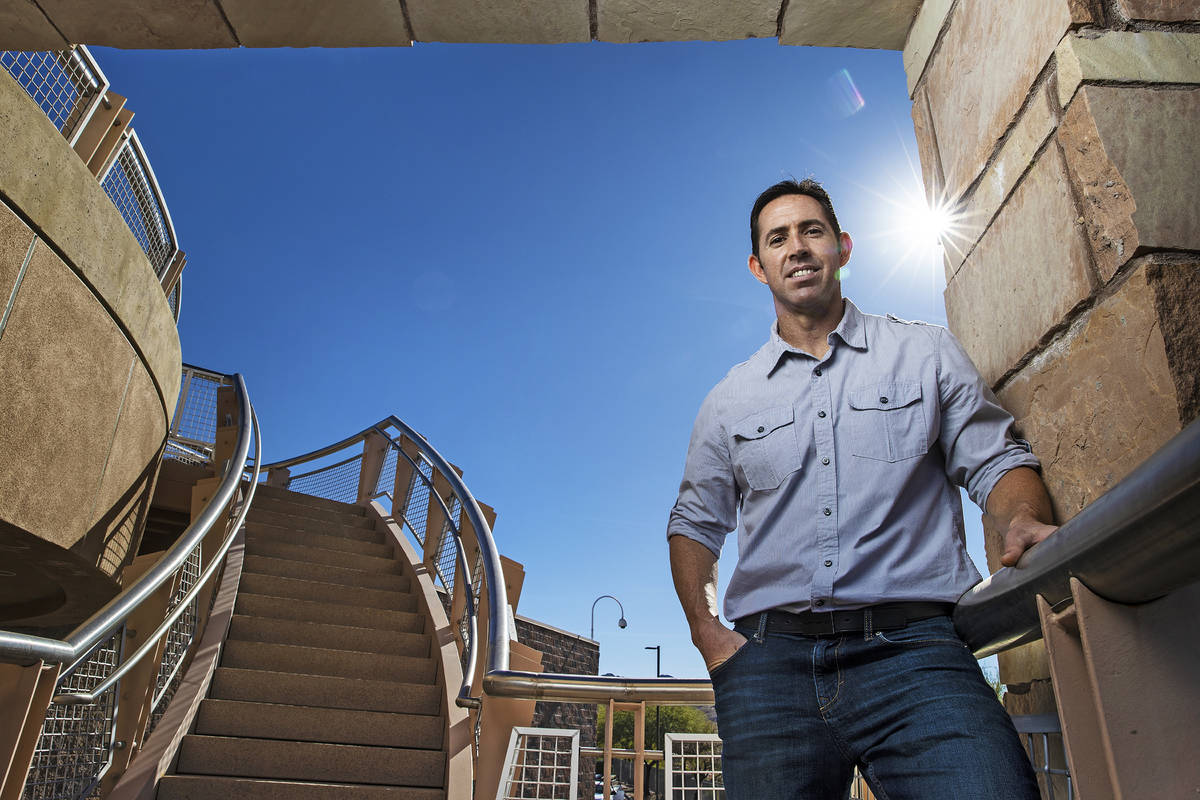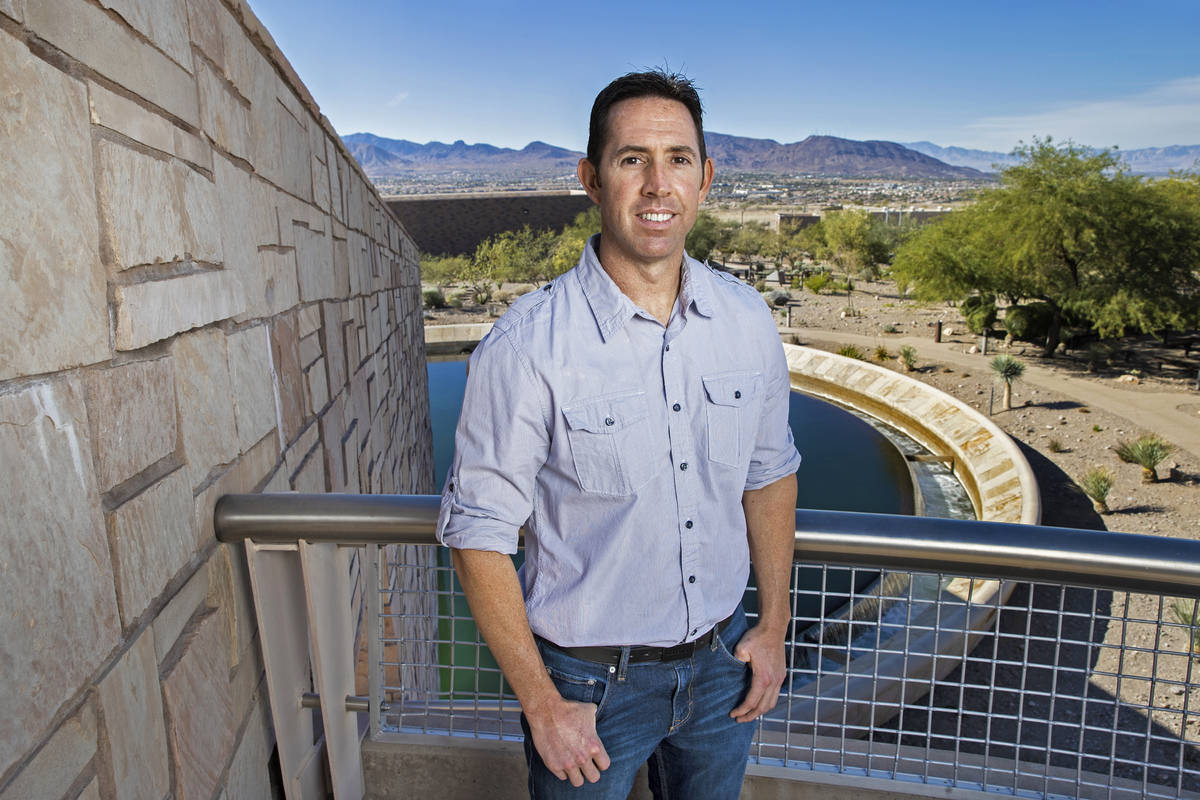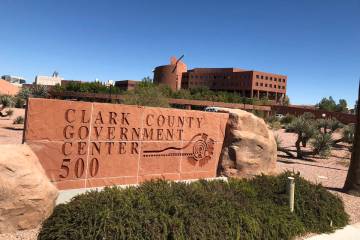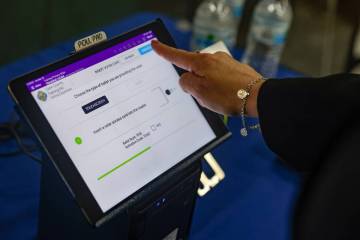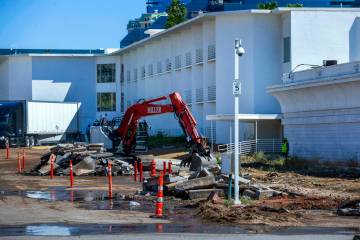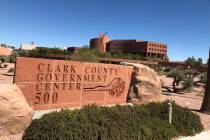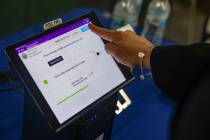Coronavirus concentrations in sewage near peak level, researchers say
Concentrations of the coronavirus in wastewater in parts of the Las Vegas Valley are approaching levels last seen during the winter peak of the disease in Nevada, even though key COVID-19 metrics like new cases and hospitalizations remain far lower, researchers say.
Two of the seven valley locations where wastewater samples are being regularly tested for SARS-CoV-2, the virus that causes COVID-19, are showing virus concentrations close to the peak of the winter surge, according to Daniel Gerrity, principal research microbiologist for the Southern Nevada Water Authority.
“Unless something changes, we will be at that level across all of Southern Nevada relatively soon,” he predicted.
The findings come as COVID-19 cases, hospitalizations and the test positivity rate are rising in Nevada, a surge blamed in large part on the presence of the so-called delta variant, a more contagious form of the coronavirus.
Testing wastewater, or sewage, for the presence of infectious diseases is not new, but it’s also not a branch of science with a long historical record to draw from.
Information being collected by the Centers for Disease Control and Prevention through the National Wastewater Surveillance System (NWSS) is aiming to fill that gap and could help guide future public health policy.
Wastewater analysis, for example, could identify the presence of the coronavirus from asymptomatic infection, where people are infected but do not show the typical symptoms and may not seek testing.
‘We’re not out of this yet’
Checking sewage for the presence of the virus, on the other hand, provides a steady data flow that will not be interrupted by anything short of a major sewer failure.
Concentrations of the virus in wastewater have been climbing since the state abandoned a blanket mask mandate in May, Gerrity said. The concentration of the virus in sewage is now higher than what would be expected for the reported number of cases, he said.
“It’s just another reminder that we’re not out of this yet,” Gerrity said.
Southern Nevada’s wastewater has a higher concentration of virus than other parts of the country that contribute samples to the CDC surveillance program, he said.
A Southern Nevada Health District spokeswoman said in an email that the heightened levels of the virus in wastewater are a concern because they show that the spread of COVID-19 in Clark County has increased.
Gerrity said he isn’t alarmed by the findings, though.
Although Southern Nevada is experiencing more coronavirus infections, there are also more people protected by vaccines. Coupled with more recent infections being driven by younger people, the health outcomes aren’t as dire as they were over the winter, he said.
But there are still vulnerable people in the community who are unprotected, so the findings do underscore the importance of getting vaccinated, he said.
Where Gerrity’s work focuses on the overall levels of virus in the wastewater, UNLV associate professor Edwin Oh’s team focuses on identifying the variants of the coronavirus that are in the area’s sewage.
Lambda and other variants circulating
Two weeks ago, every facility where wastewater samples are collected had positive hits for the delta variant, Oh said.
“So this frequency of this variant here in Southern Nevada, that’s just been shocking,” he said.
About the same time, Oh’s team identified the “delta plus” variant in Southern Nevada, and about a week ago, the team found traces of the lambda variant in wastewater, he said.
The lambda variant was first identified in Peru in December and was named last month by the World Health Organization as a variant of interest.
Mark Pandori, director of the Nevada State Public Health Laboratory, said in an email that his lab found one case of the lambda variant on June 2, but has not seen another since.
In the U.S., there have been more than 600 positive tests for the lambda variant in at least 38 states, CDC spokeswoman Jade Fulce said in an email.
Contact Blake Apgar at bapgar@reviewjournal.com or 702-387-5298. Follow @blakeapgar on Twitter.



